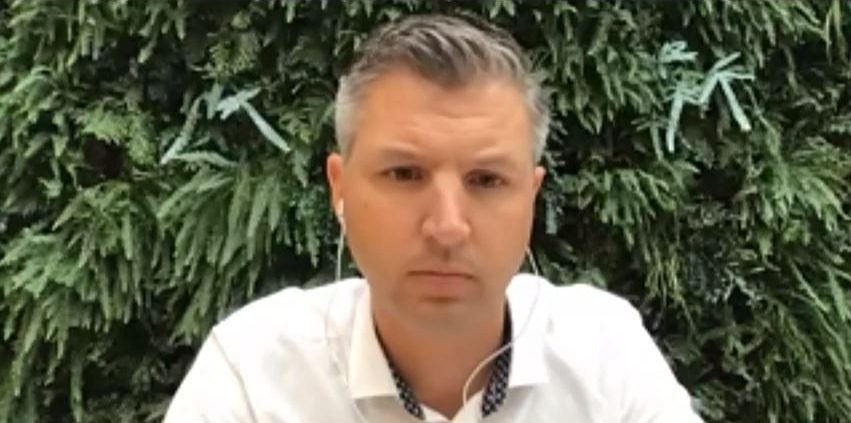Innovation and partnership for a sustainable economy
BCSDH’s recommendations for sustainable food and the biodiversity have been published
“To accelerate the change, innovative collaboration is necessary among business, government, science, and education” – highlighted Mark Zwinkels in a speech at BCSDH’s Virtual Business lunch. The focus of the event’s professional program was the sustainability of food and nature. The “For a Sustainable Future” awards were presented at the event this year in an atypical way, as not only were outstanding leaders and corporate solutions recognized, but also sustainability initiatives that have been implemented during the pandemic.
Budapest, October 8, 2020 – Providing adequate food for the world’s growing population is essential. Due to the pandemic, we have experienced what it means to be dependent on food from other countries in times of crisis, and due to closed borders. What can business do? At the Virtual Business lunch of the Business Council for Sustainable Development in Hungary (BCSDH), the three-point recommendation for the business sector was presented that points the way forward regarding the implementation of sustainable food systems that take all the issues of biodiversity into consideration.
Partnership and innovation are key to accelerating sustainability processes – presentation by Mark Zwinkels
“The world’s population is growing, aging, and urbanizing, with climate change occurring much more vigorously and faster than many thought; biodiversity is declining more rapidly than at any time in human history. Immediate action is needed, and change needs to be accelerated” –pointed out Mark Zwinkels, International Director of the World Horti Center in the Netherlands in his presentation.

“Providing the growing population with adequate food is a primary goal, but we must recognize that this cannot be achieved by using more arable land, but by investing in technology and biology that can increase the yield of our farmland in a sustainable way. Due to the pandemic, governments saw what it means to be dependent on food from other countries with closed borders. As a result, many countries are now more willing to invest in sustainable, high-tech greenhouse facilities. Due to this, the level of sustainable crop production may unprecedentedly increase. The World Horti Center is a good example of how innovation will flourish by combining practical research, talented students, and experienced and successful companies” – he added.
BCSDH’s recommendations for sustainable food and the biodiversity

“Food supply chains have been put in a difficult position by coronavirus, drawing attention to the exposure of systems, the problems of global processes, and moreover to the need for increasing the protection of biodiversity. While there are many challenges related to the complexity of transforming food systems, there are also promising, innovative technological developments and consumer trends that indicate the opportunities that are available to accelerate efforts. Will there ever be a better time to change than now?” – highlighted Attila Chikán Jr., President of BCSDH, in a speech before the introduction of the three recommendations formulated by BCSDH together with the leaders of its member companies to help the business sector take the necessary steps to increase the sustainability of food:
BCSDH’s recommendations for the business sector related to increasing the sustainability of food:
|
Over 80 CEOs, civil and scientific experts took part in the preparation and wording of the recommendation. As a result, solutions have been identified for both the business sector and its stakeholders that can positively impact the sustainability of food.

On the CEO roundtable at the business lunch, Annamária Bartók, Managing Director of Silvertris and Szilas, Ágnes Kovács, Managing Director of Sió-Eckes, Zoltán Gazsi, Managing Director of Eisberg and Péter Noszek, Managing Director of Nestlé, spoke about shorter supply chains and supply chains. on the conservation of biodiversity.

BCSDH’s events are carbon neutral, and sponsored by:





Leave a Reply
Want to join the discussion?Feel free to contribute!